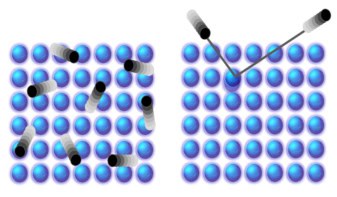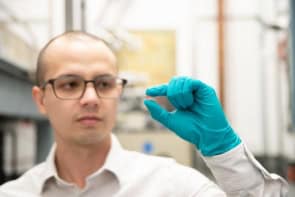Available to watch now, IOP Publishing, in partnership with Oxford Instruments, explores quantum computing
Want to learn more on this subject?
With rapid progress in quantum technology, focus is shifting from demonstrations on a small number of noisy qubits towards interesting application problems, of academic or commercial interest, where a quantum computer can outperform even the best classical supercomputer. Comparing current classical computers with optimistic assumptions for future quantum computers, this webinar will present criteria for achieving such practical quantum advantage and will argue that “small data” problems with superquadratic quantum speedups are the most promising candidates.
The simulation of quantum systems – with applications in condensed-matter physics, materials science and chemistry – is one such application area. Matthias Troyer will present recent progress on quantum algorithms for chemistry and discuss that realizing such a quantum advantage will require more than just a quantum algorithm and quantum computer. He will then also touch on a topic of growing recent interest: the ethical implications of quantum computing. He will argue that this is best viewed in the broader context of ethical issues in disruptive computing and will highlight some aspects especially relevant for quantum computing.
 Matthias Troyer is a Fellow of the American Physical Society, vice-president of the Aspen Center for Physics, a recipient of the Rahman Prize for Computational Physics of the American Physical Society for “for pioneering numerical work in many seemingly intractable areas of quantum many body physics and for providing efficient sophisticated computer codes to the community” and of the Hamburg Prize for Theoretical Physics. After receiving his PhD in 1994 from ETH Zurich in Switzerland he spent time as postdoc at the University of Tokyo before returning to ETH Zurich as a professor of computational physics. He joined Microsoft’s quantum computing programme at the beginning of 2017. Matthias works on a variety of topics in quantum computing, from the simulation of materials and quantum devices to quantum software, algorithms and applications of future quantum computers. His broader research interests span from high-performance computing and quantum computing to the simulations of quantum devices and island ecosystems.
Matthias Troyer is a Fellow of the American Physical Society, vice-president of the Aspen Center for Physics, a recipient of the Rahman Prize for Computational Physics of the American Physical Society for “for pioneering numerical work in many seemingly intractable areas of quantum many body physics and for providing efficient sophisticated computer codes to the community” and of the Hamburg Prize for Theoretical Physics. After receiving his PhD in 1994 from ETH Zurich in Switzerland he spent time as postdoc at the University of Tokyo before returning to ETH Zurich as a professor of computational physics. He joined Microsoft’s quantum computing programme at the beginning of 2017. Matthias works on a variety of topics in quantum computing, from the simulation of materials and quantum devices to quantum software, algorithms and applications of future quantum computers. His broader research interests span from high-performance computing and quantum computing to the simulations of quantum devices and island ecosystems.
Speaker relationship with IOP Publishing
Editorial board member, Machine Learning: Science and Technology.
Why not sign up for our other Quantum Week webinars? Even if you’re not able to join the live event, registering now enables you to access the recording as soon as it’s available.
- Quantum computational advantage and beyond
Monday 14 June, 10 a.m. BST - Tales of a not-quite-probability distribution
Tuesday 15 June, 2 p.m. BST - Building quantum processors and networks atom by atom
Tuesday 15 June, 4 p.m. BST - Nitride quantum light sources
Wednesday 16 June, 2 p.m. BST - A roadmap for the quantum internet
Thursday 17 June, 2 p.m. BST





